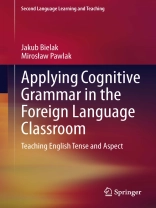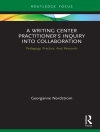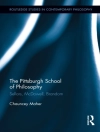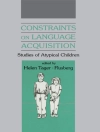The monograph constitutes an attempt to demonstrate how Cognitive Grammar (CG) can be employed in the foreign language classroom with a view to aiding learners in better understanding the complexities of English grammar. Its theoretical part provides a brief overview of the main tenets of Cognitive Grammar as well as illustrating how the description of English tense and aspect can be approached from a traditional and a CG perspective. The empirical part reports the findings of an empirical study which aimed to compare the effects of instruction utilizing traditional pedagogic descriptions with those grounded in CG on the explicit an implicit knowledge of the Present Simple and Present Continuous Tenses. The book closes with the discussion of directions for further research when it comes to the application of CG to language pedagogy as well as some pedagogic implications
表中的内容
Introduction to Cognitive Grammar.- Traditional and Cognitive Grammar descriptions of the English present tense, progressive aspect, and stative and dynamic verbs.- Pedagogical options in grammar teaching.- Applying Cognitive Grammar in the classroom.- Conclusions and Implications.












